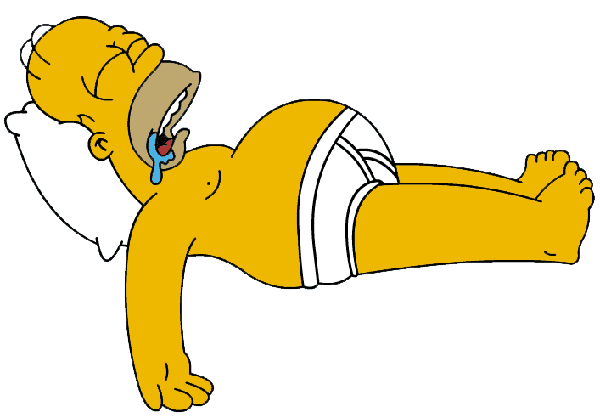Two recent articles have caught my attention. One comes from the New York Times; the other is a two-part piece from a blog called Fit For Real Life. The Times article presents some new concepts on our sleep patterns. The blog post gives a good insight on workout intensity and why more doesn’t always equal better.
Sleep
“It seemed that, given a chance to be free of modern life, the body would naturally settle into a split sleep schedule. “
I’m a big fan of sleep. I’ve mentioned here and here that lack of sleep is tied to various ailments such as obesity and obesity-related issues like diabetes. As I’ve always understood it, most adults need 8-9 hours of sleep a night. (I also understand it that a small part of the adult population actually thrives on five or fewer hours of sleep per night. I wish that were me.) The NY Times article Rethinking Sleep has me… rethinking sleep.
The article describes the American view of bedtime and sleep and contrasts that with other cultures’ take on the same thing::
“Typically, mention of our ever increasing sleeplessness is followed by calls for earlier bedtimes and a longer night’s sleep. But this directive may be part of the problem. Rather than helping us to get more rest, the tyranny of the eight-hour block reinforces a narrow conception of sleep and how we should approach it. Some of the time we spend tossing and turning may even result from misconceptions about sleep and our bodily needs: in fact neither our bodies nor our brains are built for the roughly one-third of our lives that we spend in bed.
The idea that we should sleep in eight-hour chunks is relatively recent. The world’s population sleeps in various and surprising ways. Millions of Chinese workers continue to put their heads on their desks for a nap of an hour or so after lunch, for example, and daytime napping is common from India to Spain.”
The article goes on to cite historical variations on sleep including a mention in the Canterbury Tales of going back to sleep after her “firste sleepe.” Further, physicians from the 16th century mention “first sleep” and “second sleep.” Research from the NIH supports the concept that divided sleep patterns may naturally occur during the night.
Deep sleep or REM (rapid eye movement) sleep is discussed. This is the most valuable sleep time during which our brains are highly active. REM sleep aids cognitive function, helping us solve problems and perform at a mentally high level. The benefits of REM sleep can be derived from any type of sleeping pattern, not just from eight straight hours of sleep. Research suggests that brief naps can be quite useful.
The article concludes with a discussion of workplace napping. Though napping at work isn’t allowed for most of us, the concept may be gaining traction at some places such as Google. The Army is also experimenting with the concept for soldiers who need to be ready to fight around the clocks. Strategic naps may be essential to keep them ready for war. The Texas Rangers baseball team has also prioritized sleep and napping for its players.
I can say from my own experience that napping during the day is way more than a luxury. Since I’m a personal trainer I tend to be able to nap on most days of the week. I believe it’s absolutely essential for my mental state and my overall health. I couldn’t imagine taking another job that didn’t allow for it. The pay would have to be MUCH higher, and I imagine I’d hate life a little for it.
“Hardcore” Workouts
“There is a finite amount of quality movement before the movement pattern breaks down, eventually degrading enough that your body is at risk for a variety of issues, including injury, if it continues.”
I found this two-parter on Twitter and I really like what the writer has to say. Her words echo my observations of many a gym member’s exercise routines and many a personal trainer’s training strategies–namely “more/harder is better.” Any idiot can exercise–or push someone else to exercise–until he or she vomits, passes out, or collapses. Easy! Swing a 24 kg kettlebell 800 times in an hour then do 100 pushups. Run 20 x 400 m all-out sprints with one minute rest between sprints. Add more weight. Go faster. There is a better way to work out.
The articles do a very good job of explaining what happens as we fatigue, namely we don’t move as well. We collapse at the feet, knees, hips, spine… We set ourselves up for needless wear, tear, and injury. It’s a very good read and here are the links:
“It’s a dangerous thing to think that harder/more is better. It’s not. In fact, it’s likely what limits the long-term fitness success of many. And, when used incorrectly (as I see far too often)- it’s the fast-track to injury.” The Poison Is In the Dose: A Look At “Hard-core” Workouts”
“So what if your movement patterns are dysfunctional? Fix them. Practice does not make perfect. Practice makes permanent. If something isn’t working don’t continue doing it: that only teaches dysfunction & permanent faulty movement patterns.” Where There’s Smoke, Don’t Fan the Fire: Continuing Our Look at “Hard-Core Workouts”

